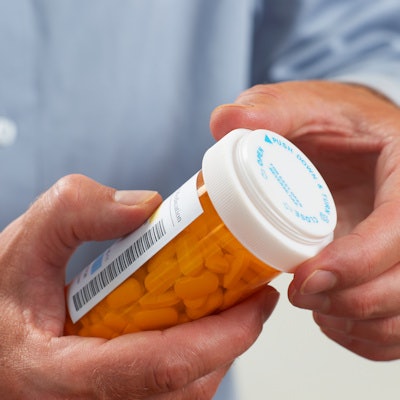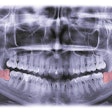
New research shows that antibiotics may change how the gut-brain connection works in rats dependent on opioids. The use of antibiotics altered the way the rats' brains responded to opioid use and withdrawal, according to the findings of a study published on April 27 in ENeuro.
The research was inspired by the life experiences of lead author Sierra Simpson, PhD, a newly minted doctoral scholar from the University of California, San Diego (UC San Diego) and Scripps Research Institute.
Simpson noticed her anxiety increased after a course of antibiotics prescribed for a suspected bacterial infection. Believing her experience could be the result of a direct connection between the gut microbiome and the brain, she tested her hypothesis in the brains of rats.
"It was many months of counting black dots, but in the end, it became clear that, at least in rats, gut microbes alter the way the brain responds to drugs," Simpson stated in a press release.
For the study, Simpson and colleagues used healthy rats with a normal gut microbiome and rats that had been given antibiotics to deplete 80% of their gut microbes. Both sets of rats were dependent on oxycodone, and the researchers selected some rats from each group to withdraw from the opioid regimen.
At first, the rats appeared the same in terms of behavior and external symptoms. But when the researchers looked at their brains, the rats with depleted microbiomes were significantly different from their counterparts with healthy guts.
During intoxication, the rats who were treated with antibiotics had more activated neurons in parts of the brain responsible for stress and pain, as well as in regions linked to opioid intoxication and withdrawal. And during withdrawal, they had fewer activated neurons in their central amygdala, which could mean they experienced fewer withdrawal symptoms.
"To me, the most surprising thing was that the rats all seemed the same on the surface," stated senior study Olivier George, PhD, an associate professor of psychiatry at the UC San Diego School of Medicine. "There weren't any major changes in the pain-relieving effect of opioids, or symptoms of withdrawal or other behavior between the rats with and without gut microbes."
The team at UC San Diego plans to continue the research, including by studying rats that self-administer doses of oxycodone. They're also mining data about the human microbiome to see if people may respond in a similar way to the rats.
Although the research is still preliminary, George believes if a similar effect is found in humans, it could make doctors think twice about prescribing opioid tablets and antibiotics at the same time.
"The way a person's gut microbes are affected could make them more or less sensitive to the opioids," he stated. "The key now will be looking for biomarkers so we can predict how a person might respond before we treat them."



















